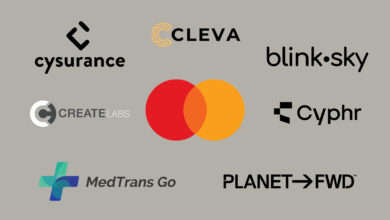5 Lessons From Super Venture

The Super Return and Super Venture main conference take place annually in Berlin.
Last week, I attended Super Venture in Berlin, one of the world’s marquee venture capital fundraising conferences. The event offered a unique opportunity to gauge the pulse of the venture capital (VC) fundraising market and by extension, the future health of the startup landscape broadly and for readers of this column, the fintech ecosystem specifically. The event brings together limited partners (LPs)—the capital providers to venture capitalists—and investors to discuss the latest trends and challenges in the sector.
Here are five key takeaways from the conference that are poised to shape the venture and fintech landscape.
1. Optimism Is (Slowly) Creeping Back
If 2023 was a year of doldrums, 2024 appears to be a year of renewed optimism. While the hype surrounding AI is palpable, many speakers at the event highlighted broader changes and a marked resurgence of enthusiasm.
Recent analysis by Kauffman Fellows indicated that VCs expect deployment to expand this year (56% of Silicon Valley managers, and 52% globally), a sentiment echoed by LPs who also anticipate increased activity. This optimism signals a positive shift for the industry, encouraging a more dynamic investment environment.
Many of the panelists throughout the event noted this show but positive trend in the market.
2. This Optimism Is Spreading Beyond Traditional Venture Capital Centers
Commenting on the European ecosystem, in a panel Jessica Schultz of Northzone emphasized how the European ecosystem has evolved. Previously concentrated in cities like Stockholm and London, the landscape now includes a much wider array of hubs.
This phenomenon of course is not confined to Europe.
In 2013, only four cities had produced unicorns; today, over 150 cities boast these high-value startups, many achieving this multiple times. Fintech exemplifies this trend, with epicenters spreading to New York, London, Toronto, São Paulo, Singapore, and Tel Aviv, creating both global contenders and local champions.
Jason Gray, the cofounder of Pioneer Fund, partially based in Canada explained it to me: “The discussions at SuperReturns made it clear that the geography of innovation is expanding, allowing more cities to become key players in the venture capital landscape.”
The crowd included LPs from every corner of the planet, including many looking to invest in local champions.
3. Yet, Not All Venture Is Created Equal
Both LPs and VCs highlighted a few preferences.
The most consistent preference related to the fundamentals of the underlying portfolio companies. The excesses of 2021 have led to painful corrections, prompting a shift toward more measured strategies.
The consensus now favors startups that embody the “Camel” model—companies built on solid unit economics, managed burn rates, and a long-term perspective. This focus on sustainable growth and prudent financial management is expected to define the next wave of successful startups.
But other preferences were more specific to the LP. Conference sessions deep dived on topics ranging from the trendy: artificial intelligence, defense, or climate change, to the specific, like geographies, corporate venture capital, etc.
GPs catering to these specificities may be better positioned to approach the market. Michael Ströck, founding partner of Allocator One, told me: “First-time GPs have to carve out their own niche. It’s hard to make money by just rehashing the old playbooks that the established brands in venture are using. We are excited to see lots of new GPs with really fresh, authentic allocation strategies at the moment.”
4. Where Venture Is Heading: Specialized And Experienced
Jonathan Biggs of Top Tier emphasized on a panel the importance of specialization to raise capital in this market, and going forward in an increasingly competitive landscape.
For example, fintech and commerce enablement are vast markets with notable specialist investors. Many of the top players are sector specialists. For instance, the second-ranked investor on this year’s Midas List (an industry publication on top venture capitalists) is a fintech investor.
While in the past, new fund formation exploded, many LPs highlighted the need for experience as a key element of their investment decisions. Two types of experience were particularly valued: a long-term track record at a larger VC firm and operational experience, particularly with a focus on creating value. In contrast, “access” managers—those built to co-invest alongside top local funds—have seen their value diminish as capital becomes scarcer.
Frederic Court of Felix Capital discussed the necessity for VCs to think about their funds, not just as investment strategies, but unique products for LPs that stand out in a crowded market. Generic fund strategies are predicted to be much harder to raise given the competition in the market. Jason Gray amplified this sentiment: “SuperReturns underscored the importance of VCs distinguishing their funds in a crowded market. To remain competitive, unique value propositions have become essential.
5. Advice For Successfully Raising Capital
Advice to GPs was consistently to keep fundraising. Many GPs described hundreds and occasionally thousands of first meetings to LPs. This season of raising capital is particularly challenging.
Perhaps nowhere has this been more felt than for emerging managers. The market for emerging managers cratered 97% versus highs in 2021.
Yet many LPs described continued dedication to the space, and unique advantages to be gained from partnering with new firms (besides narrowly investment performance). Mohadeseh Abdullahi from Molten Ventures shared insights on the proprietary data the firm gathers through its fund of fund program, suggesting that strategic approaches can still uncover valuable opportunities.
Finally, perhaps the one driver for future VC fundraising will be DPI – or realized returns. Without cash returning back to LPs, fundraising will continue to be slow (since they will be squeezed on allocation). One solution covered in multiple panels was the use of secondaries—selling existing investments to realize returns and provide liquidity. This strategy allows firms to get money off the table without necessarily offloading their best assets. The importance of DPI, or realized returns, was underscored as a critical metric for raising subsequent funds.
—-
In conclusion, the Super Venture conference highlighted a cautious yet optimistic outlook for the venture capital and fintech ecosystems. The industry is adapting to new realities with a focus on specialization, capital efficiency, and strategic differentiation. As LPs and VCs navigate this evolving landscape, these insights will be crucial in shaping their strategies and ensuring long-term success.



